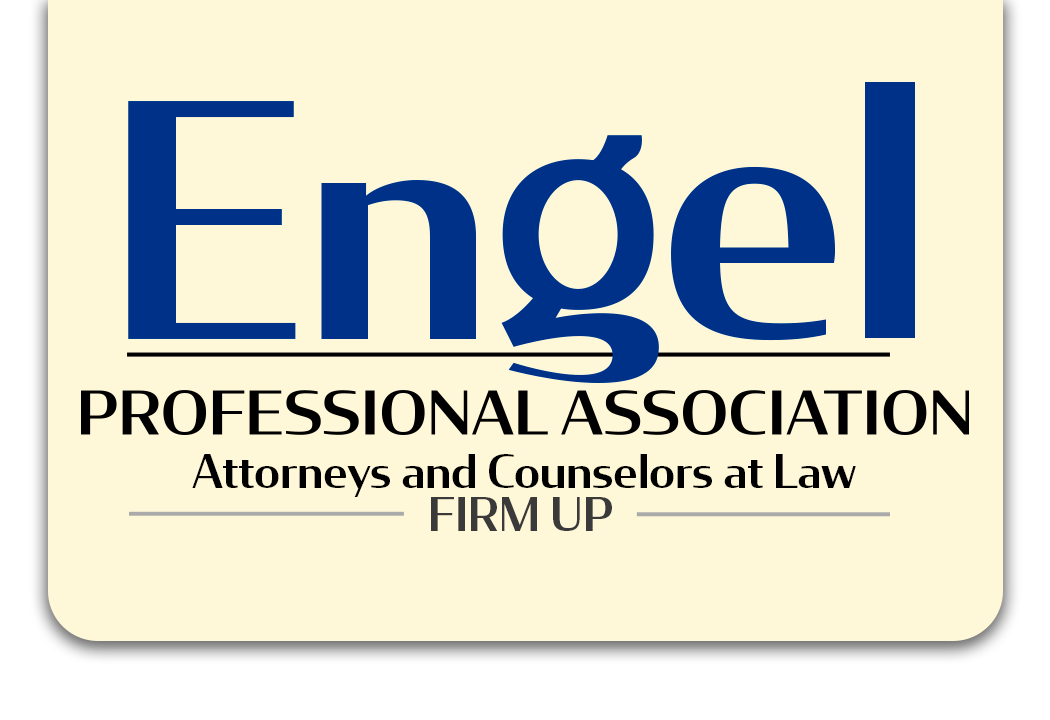KNOWLEDGEABLE.
EXPERIENCED.
INNOVATIVE.
ESTATE AND TRUST LITIGATION ATTORNEY BASED IN MINNEAPOLIS, MINNESOTA
Disputes are not rare occurrences during the estate administration process. Estate disputes can lead to litigation when the parties with conflicting interests cannot resolve the disagreement through mediation and negotiations.
At Engel Professional Association, we offer dedicated support for clients involved in estate and trust disputes and litigation. Estate litigation can tear an otherwise close-knit family apart, which is why it is crucial to act immediately.
If any disputes arise during the estate administration process, consider contacting Engel Professional Association to work with a knowledgeable attorney who can help make the process less adversarial and more efficient. I proudly represent clients in Minneapolis, St. Paul, and across Minnesota and Wisconsin.
Common Estate Disputes
In any estate administration process, there is a possibility that disputes may arise. The types of disputes that commonly result in litigation include:
A request to remove the executor (administrator). A proceeding for the removal of the executor of the estate can arise if any of the interested parties believe that the executor is unfit for their position due to misconduct, negligence, or lack of capacity.
Disputes as to the validity of the will or trust. If a will or trust was not executed properly, beneficiaries and heirs could file a dispute to challenge the validity of the legal document.
Breach of fiduciary duty. Administrators, executors, and trustees owe a fiduciary duty to beneficiaries of the decedent’s estate. When any party fails to act responsibly or fulfill their obligations, interested parties could pursue a breach of fiduciary duty claim.
Disputes related to the distribution of assets. Beneficiaries and heirs may also dispute the will if they were left out of it or assets were distributed unfairly due to undue influence.
Estate Administration Process
The probate process must be initiated within three years of the decedent’s death. The first step to initiate probate proceedings in Minnesota is to open a probate case. This can be done by submitting the appropriate paperwork to the court in the county where the decedent lived at the time of the death.
Once the probate case is opened, the court will appoint a personal representative (executor) to administer the estate. If the decedent had a will that named a personal representative, the person named in the will would be appointed by the court to serve as the executor. If there was no will, the personal representative will be selected by the court based on an order of priority established by Minnesota law.
Who Can Contest a Will in Minnesota?
In Minnesota, anyone with “legal standing” can contest a Will. People have standing if they were named in the decedent’s will or would have a right to receive a share of the estate through Minnesota intestate laws had the decedent died without a will. People with legal standing to contest a will have one year from the date of the decedent’s death to file a dispute.
Grounds for Contesting a Will
In order to contest a last will and testament in Minnesota, parties with a legal standing must prove that they have valid grounds to challenge the decedent’s will. Common grounds for contesting a will include:
Lack of testamentary capacity
Incapacity
Forgery
Clerical errors
Fraud
Duress
Undue influence
Insanity
Grounds for Contesting a Trust
Possible grounds to contest a trust in Minnesota include:
Lack of testamentary capacity
Insanity
Undue influence
Purpose contrary to public policy
The trust does not represent the settlor’s wisheS
The settlor made a mistake
Ambiguous language in the trust
INVOLVED IN ESTATE OR TRUST LITIGATION?
Estate and Trust Litigation Attorney BASED in Minneapolis, Minnesota
At Engel Professional Association, we have extensive experience guiding residents of Minneapolis and other parts of Minnesota through the estate administration process. We help my clients resolve issues when any disputes arise during estate administration. Attorney Kenneth S. Engel represents heirs, executors, beneficiaries, and other interested parties facing estate-related disputes. We provide my legal representation services to clients in Minneapolis, St. Paul, and other parts of Minnesota, including St. Cloud, Maple Grove, Mankato, Woodbury, and others.

PROBATE LITIGATION ATTORNEY BASED IN MINNEAPOLIS, MINNESOTA
Estate and trust disputes occur more often than you might think. The death of a parent or other relative often leads to strong and deep-seated emotions and even resentments. Despite the best intentions of the person who created the will or trust instrument at issue, conflicts over a will or trust can lead to litigation, which costs money, demands time and close attention, and often leaves those involved feeling cheated, bruised, overlooked or unloved. An experienced probate and trust litigation attorney can help minimize the ongoing consequences of disputes over a will, trust, or other estate-related matters.
We help people reduce the likelihood of probate and trust litigation, and we act as advocates when litigation becomes unavoidable or necessary at the time to try to help resolve a dispute. We excel at developing creative solutions, advocating forcefully in court, and advising clients about the possible outcomes of a lawsuit, including helping clients address the emotional and psychological aspects of inheritance disputes.
Litigation is often not the only available approach. We vigorously advocate for clients’ interests in court and at the negotiating table, and I help clients consider cost-benefit analyses of litigation. I know and appreciate it is the client’s decision whether to proceed on a given matter. Decisions can be made by clients on other grounds, and they may not be ready to decide on a dollars-and-cents basis what course of action is right for them. I remind clients to consider the economic and financial implications, the litigation risks, and the intangible hazards and benefits, all based on each client’s unique appetite for risk, before moving forward in a direction that’s right for them.
The non-financial costs of litigation are just as critical as the financial ones. Probate and trust disputes can leave families divided and inflict wounds that could take decades or generations to heal. I advise clients to consider both the financial and the emotional and other intangible costs of probate or trust litigation before proceeding. The emotional issues can revolve around inheritance rights, but often they’re triggered by family issues that can go back decades. Once a client decides to move forward, we will vigorously represent our client’s interests.
Our legal practice addresses the following areas:
Probate Disputes: These disputes involve will contests, questions of undue influence and capacity, and defense or removal of fiduciaries. They may include disagreement over the meaning of a will, or if the will was executed under undue influence or while the person making the will lacked the capacity to do so. They may also involve claims made by creditors, including those made after the applicable statutes of limitation expire.
Trust Disputes: Trust disputes can arise in a broad range of areas. They may be based on a trustee’s failure to meet its fiduciaries duties to the trust’s beneficiaries. These can include the trustee’s not investing prudently or not adhering to the investment standards required by the trust document. Trust disputes often challenge a trustee’s accounting practices used to weight the trust’s assets. They may also arise from the failure to file the proper tax returns or disclosure statements.
Will and Trust Contests: These often involve a dispute among family members, heirs, or other interested parties over a will or a trust. We can help resolve those issues.
Business Succession and Family Business Succession and Inheritance Issues: Dividing up a business after the death of a founding, sole or partial owner in a family-owned or other closely held business can fuel disputes that may require litigation to resolve.
Fiduciary Litigation: We represent fiduciaries or beneficiaries in matters concerning breach of fiduciary duty allegations, including proceedings to remove a fiduciary. These matters can arise from charges of mismanagement of financial assets, the improper sale of real estate, or the failure to properly operate or protect a family business.
Financial Exploitation of Vulnerable Adults: We represent people who believe an elderly or disabled family member, colleague or friend is being financially exploited. Powers of attorney and emotional bullying are frequently part of the toolbox used to financially exploit vulnerable adults.
Lets Connect
Leave a Message
We will get back to you as soon as possible.
Please try again later.


